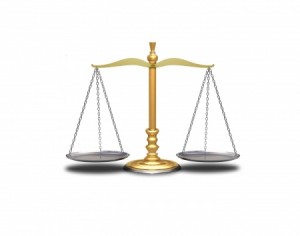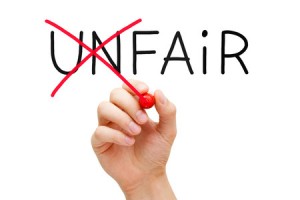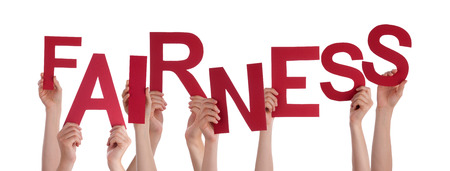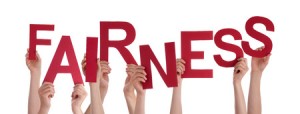What’s The Point Of Fairness In Business?
“Who says life is fair, where is that written?” This is a powerful quote from the movie classic The Princess Bride. It points to a truth everyone experiences and knows to be true. Life is not fair!
Children grow up hearing this from their parents. Then later on they experience it at work.
 Even customers can experience this during the buying process. It’s also not uncommon for shareholders and suppliers to experience this during difficult financial times.
Even customers can experience this during the buying process. It’s also not uncommon for shareholders and suppliers to experience this during difficult financial times.
Finally, we experience this with all levels of government as citizens. There are many aspects to life that are not fair.
Yet, Fairness is one of the common values claimed by all types of organizations, which I define this way:
Fairness: ability to make judgments free from discrimination or dishonesty.
Note that Fairness has nothing to do with equality, or making people happy, or even achieving what everyone believes is right. Those that embrace this value strive to create an environment that is free of discrimination or dishonesty so that the process of decision-making is fair.
The value of Fairness is about the process of decision-making, not the outcome.
That’s the point of Fairness.
In a business setting, the goal is to make good decisions that serve the needs of the business without harming anyone (i.e. customers, employees, shareholders, suppliers, and the community at large).
- Does that mean everyone will like the decisions made? No.
- Does that mean some will see the decisions as unfair? Yes.
That’s life.
Now, if you’re trying to ensure a fair work environment, consider carefully if you’re trying to please everyone – or simply make good decisions that are free from discrimination and dishonesty. If you follow a fair process, then once you have made a decision you can move forward with confidence. You’ve made the right decision.
8 Ways to Instill Fairness at Work
 There are number of ways you can demonstrate the value of Fairness in the workplace. Here are eight:
There are number of ways you can demonstrate the value of Fairness in the workplace. Here are eight:
- Control your power. There is power in your position and/or ability to influence others. Control the urge to use it when not getting your way, and never abuse it. Remember: just because you can, doesn’t mean you should.
- Model it. Apply the stated rules and defined processes equally to everyone, including yourself. If Fairness means anything to you, then it’s crucial that you actually do what you say to others.
- Avoid favoritism. Go with facts over feelings. Engage others based on their skills, experience, and attitude, not on how you feel about them.
- Change the rules. If a rule or process clearly shows discrimination to certain individuals or groups, work to change it. But be careful of introducing new biases with a proposed change that swaps out one type of discrimination for another.
- Consider perceptions. When trying to make a fair decision, consider how others will perceive it. Some might not care, while others might feel especially targeted. Be prepared to address the perception of discrimination with facts and logical reasons.
- Be honest. Always be prepared to explain the rationale behind decisions, including what is known, not known, and why now. Also, be honest with yourself and understand why you tend to lean in a certain direction vs. others (Note: we all have a natural internal bias).
- Acknowledge mistakes. Decisions are made with available data, which are never perfect. When a poor decision is made, acknowledge it, explain what’s been learned, make the necessary adjustments, and move on. If needed, apologize to those negatively impacted by it.
- Live the Golden Rule. Always treat others as you would like to be treated. This tends to be easier in familiar situations. But in unfamiliar situations, this requires putting yourself in the shoes of others, which can be difficult. Acknowledge when you can’t possibly understand how others feel.
Are such efforts worth it? There are plenty of benefits for creating a work environment that’s perceived as being fair, including:
- Increased credibility and respect of management and each other, which improves trust.
- Increased trust, of management and fellow employees, improves collaboration and teamwork.
- Improved collaboration increases productivity and employee engagement.
- Higher employee engagement lowers employee turnover, and thereby costs.
- Lower costs (and increased productivity) make for a stronger bottom line.
When employees perceive decisions are made in a fair and reasonable manner, everyone wins.
Bottom Line: Embracing the value of Fairness is about the process of decision-making, not the outcome. Fair decisions are made with available data; in an environment of honest, open dialogue; and with intentional effort to remove any biases that could cause perceived discrimination. All of this leads to better decisions, happier employees, and a stronger bottom line.
———————–
Where have you seen Fairness applied well in business?









